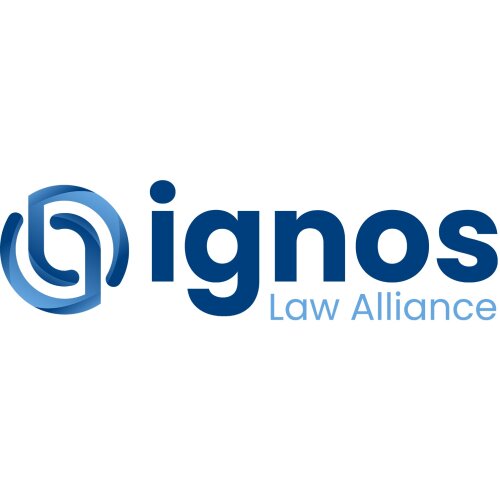Best Housing, Construction & Development Lawyers in Indonesia
Share your needs with us, get contacted by law firms.
Free. Takes 2 min.
Free Guide to Hiring a Real Estate Lawyer
Or refine your search by selecting a city:
List of the best lawyers in Indonesia
About Housing, Construction & Development Law in Indonesia
Housing, Construction, and Development law in Indonesia is a significant and dynamic area governed by a mixture of national legislation and regional regulations. These laws cover numerous aspects such as land acquisition, zoning, construction permits, real estate transactions, and environmental impact assessments. With rapid urbanization and infrastructure development, the legal framework aims to ensure sustainable housing growth and development while balancing the interests of developers, consumers, and the government. Notable laws in this field include the Law on Spatial Planning, Building Law, and specific ministerial regulations on housing development and land use.
Why You May Need a Lawyer
There are several reasons why individuals or businesses might require legal assistance in the field of Housing, Construction, and Development in Indonesia:
- Property Purchase or Sale: Legal representation can ensure that real estate transactions are conducted smoothly and that all contractual obligations are met.
- Construction Contracts: Lawyers can help draft, review, and negotiate construction contracts to protect clients from potential disputes.
- Land Use and Zoning: Understanding complex zoning laws and regulations is crucial, especially for new developments or modifications to existing structures.
- Regulatory Compliance: Ensuring compliance with environmental and safety regulations can help prevent costly legal issues and fines.
- Dispute Resolution: Lawyers can assist in mediating or litigating disputes over construction defects, delays, or breaches of contract.
Local Laws Overview
Several key aspects of Indonesian laws are particularly relevant to those involved in Housing, Construction, and Development:
- Ownership and Land Rights: The Agrarian Law regulates land ownership and applies principles of customary (adat) law, impacting land acquisition and use.
- Building Permits (IMB): Prior to construction, developers must obtain an IMB (Izin Mendirikan Bangunan), ensuring projects meet zoning and building standards.
- Spatial Planning: The Law on Spatial Planning establishes a framework for land use planning at both the national and regional levels.
- Environmental Regulations: Developments must consider the Environmental Impact Assessment (EIA) to ensure environmental sustainability.
- Housing Regulations: Specific regulations impact affordable housing development and urban residential planning.
Frequently Asked Questions
What is the process for obtaining a building permit in Indonesia?
To obtain a building permit (IMB), applicants typically need to submit architectural designs, land certificates, environmental impact assessments, and compliance with local zoning regulations to the local government office.
Can foreigners own property in Indonesia?
Foreigners can own property in Indonesia, but there are restrictions. Generally, expatriates can obtain rights to use or lease land (Hak Pakai), but they cannot own freehold land (Hak Milik).
What are the consequences of building without a permit?
Constructing without a permit can lead to fines, forced demolition, or legal disputes. Additionally, unauthorized buildings may not be insurable or sellable.
What should I do if there is a dispute with a contractor?
If a dispute arises, contractual arbitration or negotiation is the preferred method. If necessary, legal action through the Indonesian courts may be pursued.
Is it necessary to conduct a due diligence check before purchasing property?
Yes, due diligence is essential to verify legal ownership, ensure there are no encumbrances, and confirm compliance with zoning and environmental regulations.
How do zoning laws affect new constructions?
Zoning laws designate land use for specific purposes, such as residential, commercial, or industrial. New constructions must comply with these zoning designations.
What is an Environmental Impact Assessment (EIA)?
An EIA is a report used to evaluate the ecological impact of a proposed development. It is required for approvals and ensures sustainable development practices.
Are there different types of property titles in Indonesia?
Yes, property titles include freehold (Hak Milik), leasehold (Hak Guna Bangunan), right to use (Hak Pakai), and others, each with its own restrictions and rights.
What legal protections are available for purchasing off-plan properties?
Laws protect buyers of off-plan properties by requiring developers to complete projects as planned. Contracts must detail project specifications, timelines, and penalties for non-compliance.
How can I ensure a construction project meets safety standards?
Hiring qualified architects and engineers, obtaining necessary permits, following government-regulated construction standards, and undergoing regular inspections can ensure safety compliance.
Additional Resources
For further assistance, consider reaching out to the following resources:
- Indonesia Real Estate Association (REI): A professional body for developers and real estate professionals.
- Ministry of Public Works and Housing: The governmental body responsible for regulating the housing and construction industry.
- Indonesian National Construction Services Development Board (LPJK): Offers guidelines and information on construction services and standards.
- The Indonesian Advocates Association (PERADI): Provides a directory of licensed legal practitioners.
Next Steps
If you need legal assistance in the Housing, Construction, and Development sector, consider the following steps:
- Identify Your Needs: Clearly define the specific issues or questions you have regarding your situation.
- Consult a Lawyer: Seek out a lawyer specialized in Indonesian housing and construction law for expert guidance.
- Gather Necessary Documentation: Compile all relevant documentation, such as contracts, permits, and correspondence, to present a comprehensive picture to your lawyer.
- Consider Alternative Dispute Resolution: Mediation or arbitration might offer a less adversarial and quicker resolution to disputes.
- Stay Informed: Regularly consult legal updates and new regulations to ensure continued compliance with Indonesian laws.
Lawzana helps you find the best lawyers and law firms in Indonesia through a curated and pre-screened list of qualified legal professionals. Our platform offers rankings and detailed profiles of attorneys and law firms, allowing you to compare based on practice areas, including Housing, Construction & Development, experience, and client feedback.
Each profile includes a description of the firm's areas of practice, client reviews, team members and partners, year of establishment, spoken languages, office locations, contact information, social media presence, and any published articles or resources. Most firms on our platform speak English and are experienced in both local and international legal matters.
Get a quote from top-rated law firms in Indonesia — quickly, securely, and without unnecessary hassle.
Disclaimer:
The information provided on this page is for general informational purposes only and does not constitute legal advice. While we strive to ensure the accuracy and relevance of the content, legal information may change over time, and interpretations of the law can vary. You should always consult with a qualified legal professional for advice specific to your situation.
We disclaim all liability for actions taken or not taken based on the content of this page. If you believe any information is incorrect or outdated, please contact us, and we will review and update it where appropriate.
Browse housing, construction & development law firms by city in Indonesia
Refine your search by selecting a city.















